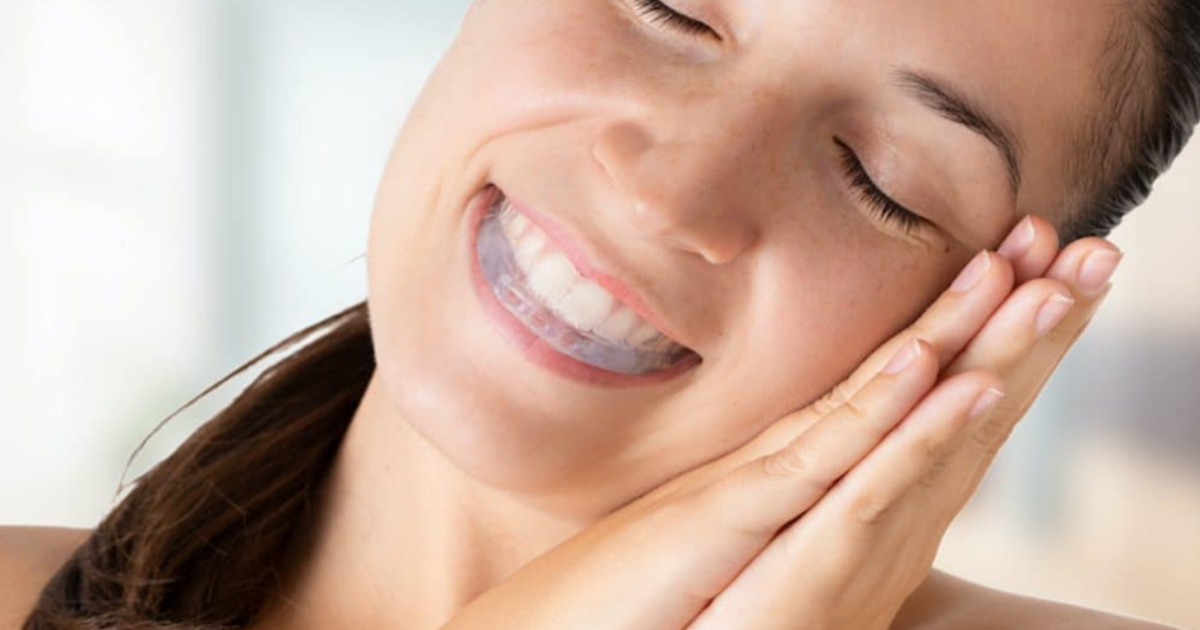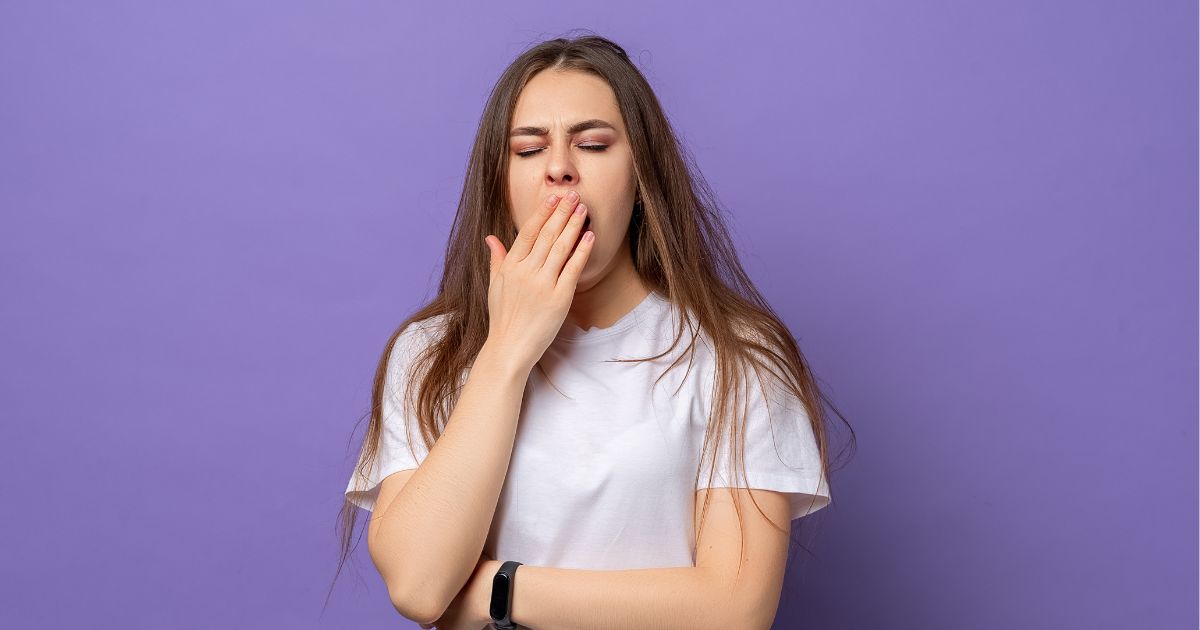Have you ever woken up with a sore jaw or noticed that your teeth feel sensitive? If so, you may be grinding your teeth during sleep, a condition known as sleep bruxism. Grinding teeth during sleep is a relatively common problem that affects people of all ages. In this blog post, we will explore the causes of teeth grinding at night and discuss some effective solutions to help alleviate this condition.
Causes of Teeth Grinding in Sleep
- Stress and Anxiety: One of the leading causes of teeth grinding during sleep is stress and anxiety. When we are under significant stress, our bodies tend to hold tension, and this tension can manifest as teeth grinding at night. Managing stress through relaxation techniques and addressing the root causes of anxiety can be helpful in reducing teeth grinding.
- Sleep Disorders: Certain sleep disorders, such as sleep apnea and snoring, can contribute to teeth grinding. These conditions disrupt the normal sleep cycle, leading to increased muscle activity, including grinding of the teeth. Treating the underlying sleep disorder can often alleviate or reduce teeth grinding.
- Dental Issues: Dental problems, such as misaligned teeth or an abnormal bite, can also lead to teeth grinding during sleep. When the teeth do not align properly, the body may try to self-adjust by grinding them together unconsciously. Consulting with a dentist can help identify and treat any dental issues contributing to teeth grinding.
- Medications and Substances: Some medications, such as certain antidepressants or stimulants, can have a side effect of teeth grinding. Additionally, substances like caffeine and alcohol can also increase the likelihood of grinding teeth during sleep. Discussing these concerns with a healthcare provider can help determine if medication adjustments are necessary.
Solutions for Teeth Grinding in Sleep
- Mouthguards or Splints: One of the most common solutions for teeth grinding is wearing a mouthguard or splint during sleep. These custom-fit devices create a barrier between the upper and lower teeth, protecting them from the damaging effects of grinding. Dentists can provide professionally fitted mouthguards or splints tailored to an individual’s specific needs.
- Stress Management Techniques: As stress is a significant contributor to teeth grinding, adopting stress management techniques can be beneficial. Engaging in activities such as exercise, yoga, meditation, or deep breathing exercises can help relax the body and reduce tension, potentially reducing teeth-grinding episodes.
- Correcting Sleep Disorders: Addressing any underlying sleep disorders, such as sleep apnea, can significantly reduce teeth grinding at night. Treating sleep disorders may involve lifestyle changes, the use of continuous positive airway pressure (CPAP) devices, or other medical interventions. Consulting with a sleep specialist is crucial for accurate diagnosis and appropriate treatment.
- Dental Treatments: If teeth grinding is caused by dental issues, seeking dental treatment can be effective. Orthodontic interventions, such as braces or aligners, can correct misaligned teeth and improve the bite. Dental professionals may also recommend reshaping or reconstructing teeth to alleviate the grinding and prevent further damage.
- Behavioral Changes: Simple behavioral changes can also help reduce teeth grinding. Avoiding stimulating substances like caffeine and alcohol, particularly in the evening, can decrease the likelihood of grinding. Additionally, establishing a relaxing bedtime routine, such as taking a warm bath or reading a book, can promote better sleep and reduce teeth grinding.
Teeth grinding during sleep can be a bothersome condition that can lead to various dental problems and discomfort. Identifying the underlying causes and implementing appropriate solutions is essential for managing this condition effectively. Whether it’s addressing stress, treating sleep disorders, using dental interventions, or making lifestyle changes, finding the right combination of solutions can significantly alleviate teeth grinding and promote better oral health. If you or a loved one is experiencing teeth grinding during sleep, it is important to consult with healthcare professionals, including dentists and sleep specialists, to determine the best course of action. Remember, everyone’s situation is unique, and what works for one person may not work for another. Patience and persistence may be necessary for finding the most effective solutions for managing teeth grinding during sleep. By taking proactive steps and seeking appropriate treatment, individuals can alleviate the discomfort associated with teeth grinding and maintain optimal oral health.
In conclusion, grinding teeth during sleep, or sleep bruxism, can have various causes, including stress, sleep disorders, dental issues, and medication use. It is crucial to identify and address the underlying factors contributing to teeth grinding to effectively manage the condition. Solutions may include wearing mouthguards or splints, implementing stress management techniques, addressing sleep disorders, seeking dental treatments, and making behavioral changes. Consulting with healthcare professionals is essential in developing a personalized approach to alleviate teeth grinding and promote better oral health. Remember, taking action and seeking appropriate treatment can lead to more restful sleep and improved overall well-being.
Who Can I Contact if I Have More Questions?
If you or a loved one is struggling with teeth grinding during sleep and are seeking professional help, the Jacksonville Sleep Center is an excellent resource to consider. At the Jacksonville Sleep Center, our team of experienced sleep specialists works collaboratively to provide comprehensive evaluations and personalized treatment plans. We employ state-of-the-art diagnostic tools and techniques to accurately assess the underlying causes of teeth grinding, such as sleep apnea or other sleep disorders. Once the root cause of the teeth grinding is identified, we offer a range of effective solutions tailored to each individual’s needs. Recommendations may include the use of custom-fit mouthguards or splints to protect the teeth during sleep and prevent further damage. Additionally, the center’s sleep specialists, such as Dr. Festic, can provide guidance on managing stress and anxiety, as well as address any concurrent sleep disorders that may be contributing to the teeth grinding. What sets the Jacksonville Sleep Center apart is our commitment to personalized care and ongoing support. We prioritize patient education, ensuring that individuals fully understand their condition and the recommended treatments. The center’s compassionate and knowledgeable staff are available to answer questions, address concerns, and provide guidance throughout the treatment process. If you are in the Jacksonville area and experiencing teeth grinding during sleep, consider reaching out to us to schedule a consultation.






